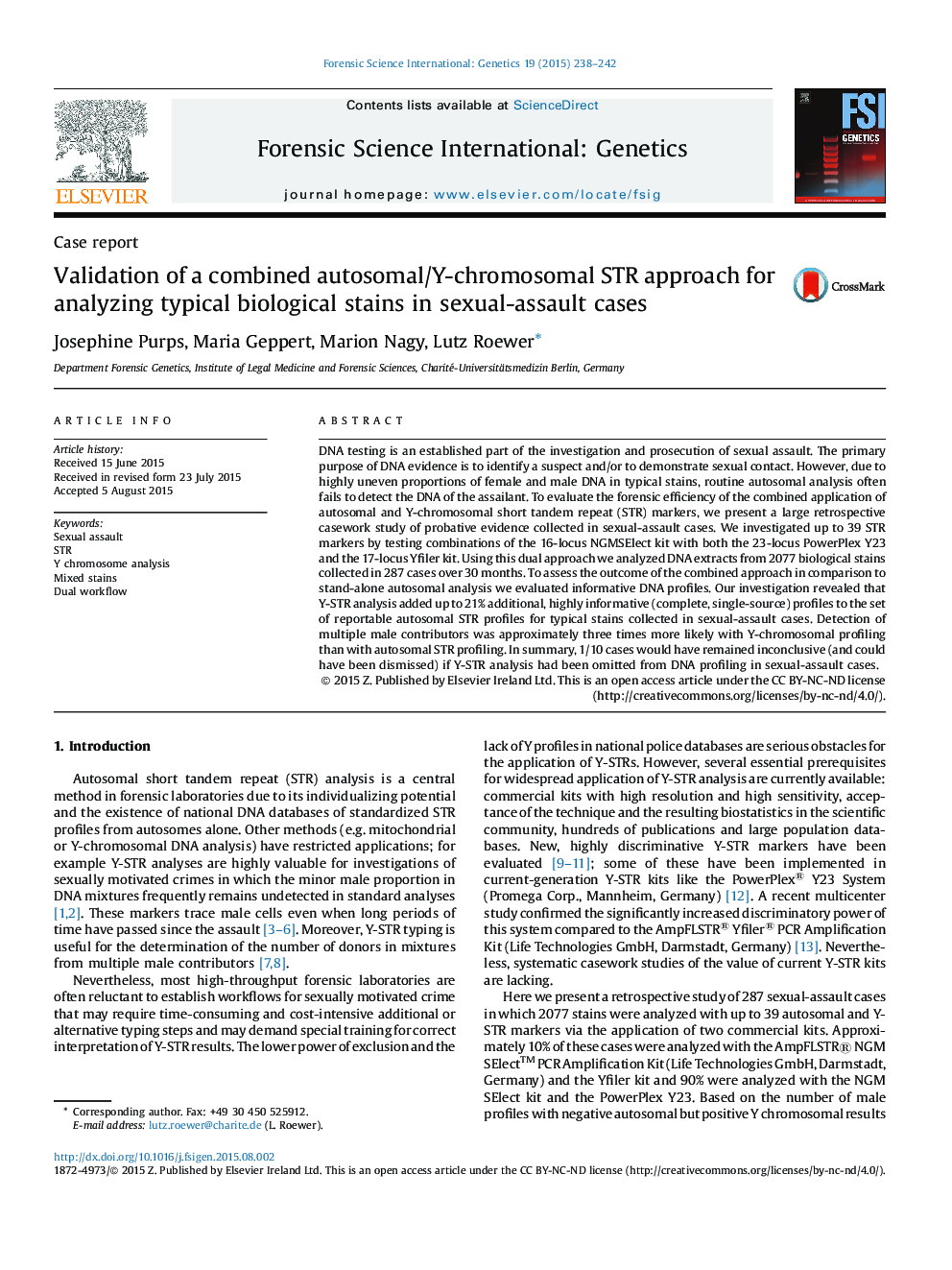| Article ID | Journal | Published Year | Pages | File Type |
|---|---|---|---|---|
| 6553703 | Forensic Science International: Genetics | 2015 | 5 Pages |
Abstract
DNA testing is an established part of the investigation and prosecution of sexual assault. The primary purpose of DNA evidence is to identify a suspect and/or to demonstrate sexual contact. However, due to highly uneven proportions of female and male DNA in typical stains, routine autosomal analysis often fails to detect the DNA of the assailant. To evaluate the forensic efficiency of the combined application of autosomal and Y-chromosomal short tandem repeat (STR) markers, we present a large retrospective casework study of probative evidence collected in sexual-assault cases. We investigated up to 39 STR markers by testing combinations of the 16-locus NGMSElect kit with both the 23-locus PowerPlex Y23 and the 17-locus Yfiler kit. Using this dual approach we analyzed DNA extracts from 2077 biological stains collected in 287 cases over 30 months. To assess the outcome of the combined approach in comparison to stand-alone autosomal analysis we evaluated informative DNA profiles. Our investigation revealed that Y-STR analysis added up to 21% additional, highly informative (complete, single-source) profiles to the set of reportable autosomal STR profiles for typical stains collected in sexual-assault cases. Detection of multiple male contributors was approximately three times more likely with Y-chromosomal profiling than with autosomal STR profiling. In summary, 1/10 cases would have remained inconclusive (and could have been dismissed) if Y-STR analysis had been omitted from DNA profiling in sexual-assault cases.
Keywords
Related Topics
Life Sciences
Biochemistry, Genetics and Molecular Biology
Genetics
Authors
Josephine Purps, Maria Geppert, Marion Nagy, Lutz Roewer,
